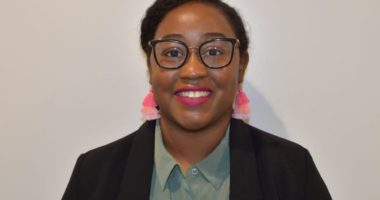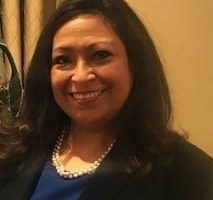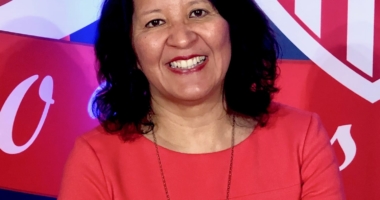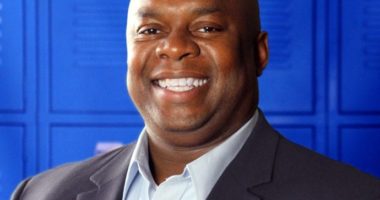Profiles in Education Equity: Cimone Philpotts, Policy Director, Wilmington (DE) Urban League
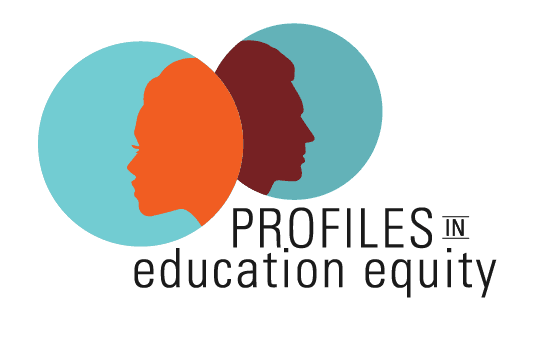 Cimone Philpotts has lived a life of public service. Currently, she is the policy director at the Metropolitan Wilmington Urban League and a doctoral candidate in the Biden School at the University of Delaware with a research interest of race, gender, and education policy. After receiving her economics degree from Spelman College in Atlanta, she moved to Delaware in pursuit of her master’s in public administration. Cimone has worked as the legislative aide to now-retired Delaware State Senator Margaret Rose Henry, as the project coordinator to US Senator Christopher Coons, and as Delaware political director for the primary election of Hillary Clinton. She is the youngest member of the Delaware Board of Elections and serves as the statewide social action chair for Delta Sigma Theta Sorority Inc., as well as the public policy and advocacy chair for the Delaware chapter of the National Coalition of 100 Black Women.
Cimone Philpotts has lived a life of public service. Currently, she is the policy director at the Metropolitan Wilmington Urban League and a doctoral candidate in the Biden School at the University of Delaware with a research interest of race, gender, and education policy. After receiving her economics degree from Spelman College in Atlanta, she moved to Delaware in pursuit of her master’s in public administration. Cimone has worked as the legislative aide to now-retired Delaware State Senator Margaret Rose Henry, as the project coordinator to US Senator Christopher Coons, and as Delaware political director for the primary election of Hillary Clinton. She is the youngest member of the Delaware Board of Elections and serves as the statewide social action chair for Delta Sigma Theta Sorority Inc., as well as the public policy and advocacy chair for the Delaware chapter of the National Coalition of 100 Black Women.
What does education equity mean to you?
To me, education equity means that every child, regardless of their race, gender, zip code, background, or socioeconomic status, gets equal access to opportunity — even if that means providing extra resources to equalize the starting point. Resources aren’t always just money — it’s qualified and culturally competent teachers, better school buildings, better books and materials, and access to technology just to name a few resources.
What’s your favorite quote? Why?
“Education is for improving the lives of others.” — Marian Wright Edelman
It is a quote to live by. It is simple yet so profound. Marian Wright Edelman is both a sorority sister of mine as well as a Spelman sister who founded the Children’s Defense Fund — which I happened to work for a couple of summers ago at our local Freedom School here in Wilmington. She dedicated her entire professional life to advocating for Americans who face the most injustices. That is the trajectory I am on. It is only through my continuous education will I effectively make change in my community and improve the lives of others.
What do you think is the most pressing education equity issue right now? How can advocates address this challenge?
Education funding is by far the most pressing education equity issue right now — and I’m not just saying that because I’ve been researching this topic for over a decade. If you’re reading this, then chances are, you probably already know how disproportionate education funding is between schools with high concentrations of students of color and those from low-income backgrounds and schools that serve a less diverse population and students whose families are middle and upper income.
There are different reasons for these disparities. Here in Delaware, one of the reasons is the fact that homes have not been appraised in almost 30 years. This is important because education funding is so localized, so schools located in areas that pay higher property taxes most likely have more and better resources. Over the years, neighborhoods have changed (some for the better some not so much). So, some districts could be getting more money than they should and some districts should probably be getting more money than they’re currently getting. We have an equalization formula that should balance this disparity out but it has been frozen for quite some time.
Another reason for education funding disparities is the formula itself. Although it is preferred by the bureaucrats because it is so predictable, it’s loathed by the advocates and beneficiaries because it is sustaining the disparities.
Another reason is just not having enough money invested in education. Education is definitely one of the largest budgets in Delaware, so simply just giving more won’t solve the issue because the more given, used in the same way, can render the same results around low performance. Right now, we do not have recurring funds for English learners, students from low-income backgrounds, nor for students with disabilities between K-3. When we increase the budget, the budget should be reallocated in such a way to address the needs of students who are underserved.
There are pieces of legislation out now that would add additional funding to education in Delaware specifically for students who are underserved. Advocates should call their legislators and express this is what they want, and it is what is needed for our children to have equal access to opportunity.
How has the education equity landscape changed over the years?
I’ve been researching education funding for about a decade, and have translated my research into research-based advocacy for about seven years now. I started off as the legislative aide to then-Senator Margaret Rose Henry when the Delaware Secretary of Education, Mark Murphy, stood on the steps of an elementary school in Senator Henry’s district and introduced a plan to close the lowest performing schools. That didn’t sit well with the community at all, since the lowest performing schools were in her district — high population of Black and Latino students. Then-Gov. Jack Markell created the Wilmington Education Advisory Committee to figure out what to do with these low-performing schools in Wilmington. Fast forward seven years, a decision was made, but the current governor, Gov. John Carney consolidated schools in the lowest performing school district. I’m still working on a governor-commissioned task force looking at the same thing, but this time it’s called the Redding Consortium. It is quite frustrating to talk about the same issue with no changes or improvements made for underserved students.
But that pales in comparison to Bebe Coker, Jea Street, and Margaret Rose Henry, who are just a few of the civil rights giants in education in Delaware who have been around since before Brown and taught me what they know. Unfortunately, literally nothing has changed since Brown. Schools are still highly segregated, Black and Latino children are still disproportionately punished and are denied the resources necessary to learn at high-levels, which has resulted in students only performing at sometimes single-digit proficiency rates, Mr. Street realized that nothing good ever happened for Black children without a lawsuit, so in 2018, he partnered with the NAACP and the ACLU of Delaware to bring forth an education funding lawsuit. It was a long-fought journey. The state tried to appeal it — saying something along the lines of Yes! This is wrong but it’s not our fault! They put the case in a tiny courtroom and ACLU, NAACP, the Metropolitan Wilmington Urban League, and members of Delta Sigma Theta Sorority Inc. organized and flooded that courtroom. It was standing room only with people waiting outside. It was this type of advocacy that got the attention of the judge who ended up ruling in our favor. The settlement was the floor and not the ceiling, but there is hope for improved education equity.
What’s next regarding your work?
I am trying to wrap up my dissertation work entitled, Civic Capacity and Education Funding Reform in Delaware. I am hoping my research can inform a better way to go about education reform in the state, since reform efforts have been nonexistent or incremental at best. Generally, there have been no wins for children who face the most injustices since Brown v. Board, which was just an indictment with poor implementation. My plan is to continue researching, educating, and improving the lives of others through academia, activism, and advocacy. All the groups I am a part of are collectively trying to figure out the best way to move forward from the 2018 ACLU education funding lawsuit.

